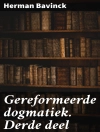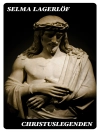In ‘Town and Country Sermons, ‘ Charles Kingsley weaves a rich tapestry of religious thought, exploring the dichotomy between urban and rural life through a series of sermons that resonate with deep moral and social commentary. Written in an accessible yet eloquent style, Kingsley’s work reflects the Victorian era’s preoccupation with social reform and the ethical responsibilities of individuals within their communities. The sermons emphasize the value of a harmonious relationship with nature and underscore the moral imperatives addressing the injustices wrought by industrialization. Kingsley, a clergyman and a prominent figure in the Victorian literary and social landscape, drew upon his own experiences as an advocate for the poor and a critic of industrial excess. His dual role as both a pastor and a social reformer profoundly influenced his writing, prompting him to address the spiritual needs of his contemporaries at a time of great social upheaval. Kingsley’s commitment to bridging the divide between classes and his belief in the transformative power of faith are evident throughout this collection. ‘Town and Country Sermons’ is highly recommended for readers interested in the intersection of spirituality and social ethics during the Victorian period. Kingsley’s insights remain strikingly relevant today, providing not only a historical perspective but also a call to recognize the moral dimensions of our everyday lives. This collection serves as an essential resource for those seeking to delve into the profound connections between faith, community, and the natural world.
Circa l’autore
Charles Kingsley (1819–1875) was a renowned English clergyman, university professor, historian, and novelist, most recognized for his significant contributions to literature, education, and social reform during the Victorian era. A prolific writer, his diverse works encapsulated a range of topics from theology to social issues, reflecting his ardor for advocating social justice and moral earnestness. This passion is palpably woven into his collection ‘Town and Country Sermons’ which delves into complex theological and moral discussions intended to bridge the chasm between religion and the everyday lives of the common people, an ongoing theme in many of his works.
Kingsley’s literary style is characterized by a vivid imagination and a clear, animated prose, which he utilized not only in sermons but also in his historical novels, such as the much-celebrated ‘Hypatia’ and ‘Westward Ho!’. His novel ‘The Water-Babies’ is considered a classic in children’s literature, incorporating rich allegories and fantastical elements to criticize the social ills of his time. As a figure of the Broad Church movement, Kingsley was involved in the social gospel, and his role as a proponent of Christian Socialism illuminated much of his writing, promoting the belief that Christianity had direct implications for social and political order. Kingsley’s corpus exhibits a continuous evolution of his thoughts and his enduring quest to instill moral improvement and spiritual growth in his readership, setting him apart as a seminal figure in 19th-century British literature.












